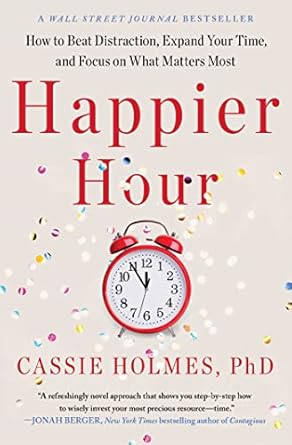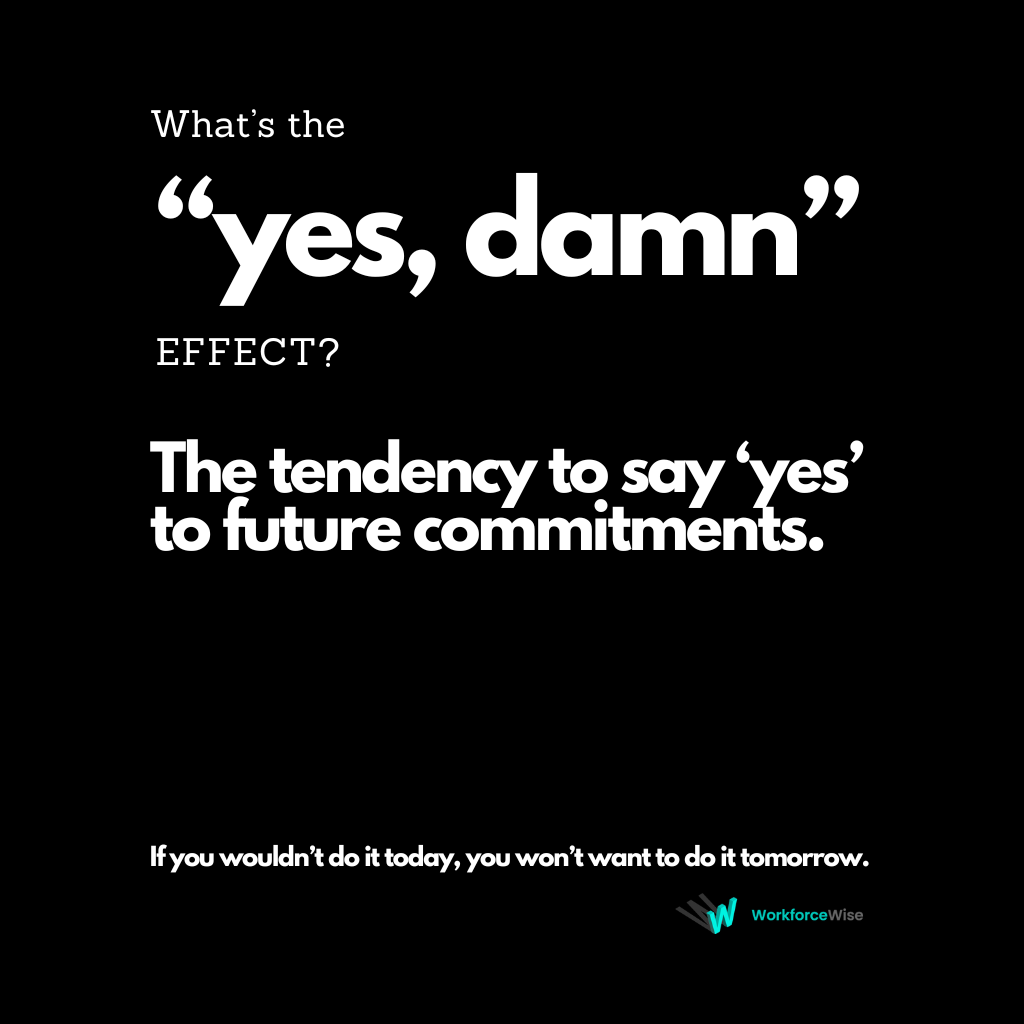We DO have time to be happy, and other insights from Cassie Mogilner Holmes

Many insights in this article are taken from the insighful book Happier Hour by Cassie Holmes, PhD.
If you haven’t yet, check out Do Less, Part 1.
Managing time well is often seen as a productivity hack, but it holds deeper significance for our overall happiness and well-being. According to social psychologist Cassie Mogilner Holmes, a professor at UCLA and author of “Happier Hour”, how we manage and think about time plays a pivotal role in shaping our happiness. Through her research, Holmes has explored the profound ways time influences well-being, revealing that how we perceive and use time can be as crucial as how much time we have.
The Paradox of Time Scarcity
Time scarcity is a concept we’re all familiar with. When pressed for time, we often feel stressed, rushed, and overwhelmed, leading to reduced happiness. Holmes’ research shows that people with too little time report levels of dissatisfaction and unhappiness similar to those who have too much time. This creates a paradox where both extremes—feeling too rushed or having too much leisure—can negatively affect our emotional state.
This feeling of time scarcity alters our behavior in subtle but profound ways. One of the most cited studies in this area, the “Good Samaritan Study,” highlights how a perceived lack of time makes us less likely to help others. In this study, participants who believed they were running late were less likely to stop and help someone in need. The implication here is that feeling time-pressured can make us less kind, less connected to others, and ultimately, less happy.

Another fascinating finding is the “Yes-Damn Effect,” researched by Gal Zauberman and John Lynch. This effect refers to our tendency to say “yes” to future commitments, assuming that we will have more time later. However, when that future arrives, we regret the decision, feeling the pinch of overcommitment and time scarcity. This disconnect between our present and future selves adds to the stress, creating unnecessary strain on our time and happiness.
Rethinking Our Relationship with Time
Holmes suggests that reframing how we perceive and use time is key to improving well-being. Instead of merely tracking tasks and responsibilities, time management should be about enhancing our life satisfaction by aligning our time with what makes us happy.
One method she suggests is time tracking—writing down how we spend our time and rating the happiness we derive from each activity. By identifying which activities bring joy and which don’t, we can uncover inefficiencies in how we use our time. For example, Holmes’ research has found that activities like checking email and social media often score low on the happiness scale (around 3-4 out of 10), while one-on-one conversations with loved ones score significantly higher (around 9-10).
Another way to boost happiness through better time management is to treat weekends like vacations. Holmes’ research shows that people who treat their weekends as a vacation, focusing on rest and enjoyment, experience greater happiness when they return to work on Monday. By approaching time off with the intention to savor it, rather than using it for errands or chores, we can maximize the emotional benefits of our free time.
Moreover, Holmes advocates thinking about time versus money when making decisions. Her research indicates that when people are asked to prioritize time over money, they tend to plan more enjoyable and meaningful activities, rather than overloading their schedules with extra work or tasks aimed at financial gain. This focus on experiences rather than material wealth can lead to greater overall life satisfaction.
Expanding Our Perspective on Time
One of the most profound ideas Holmes introduces is the need to expand our perspective on time and how fleeting it truly is. By acknowledging that our time is finite, we are more likely to align our actions with what matters most.
Holmes recommends exercises like writing your own eulogy, which can clarify your values and help you focus on the legacy you want to leave behind. By reflecting on how we want to be remembered, we can make more conscious decisions about how to spend our time in ways that bring lasting joy and fulfillment.
Another eye-opening practice is the “time left” exercise—counting how many times you’ve engaged in joyful activities and estimating how many opportunities you may have left to do them. For example, if you enjoy hiking with friends and estimate that you’ll be able to do so 20 more times in your life, this realization can prompt you to cherish and prioritize those experiences.
Holmes also emphasizes the importance of seeking moments of transcendence, activities that expand your perspective beyond yourself. Whether it’s through physical exercise, being in nature, or engaging in creative work, these moments can make time feel less scarce and more meaningful.
Time, Happiness, and Values
Ultimately, Cassie Mogilner Holmes’ research reveals that our happiness isn’t just a matter of having more time, but rather how we use and think about the time we have. By becoming more intentional with our time, we can make choices that align with our values, foster connections, and create more moments of joy.
The data on happiness ratings for various activities shows that the way we spend our time greatly impacts our emotional well-being. Time spent on low-value activities, such as scrolling through social media or checking emails, often results in lower happiness ratings, while time spent engaging with loved ones or doing something physically or mentally stimulating tends to lead to a greater sense of fulfillment.
As Holmes puts it, “When we’re thinking about this resource, it makes us spend more deliberately in ways that are aligned with our values, in ways that make us feel happier.” By rethinking our relationship with time—whether through time tracking, prioritizing experiences, or expanding our perspective—we can learn to manage our time in ways that contribute to our overall happiness and well-being.





